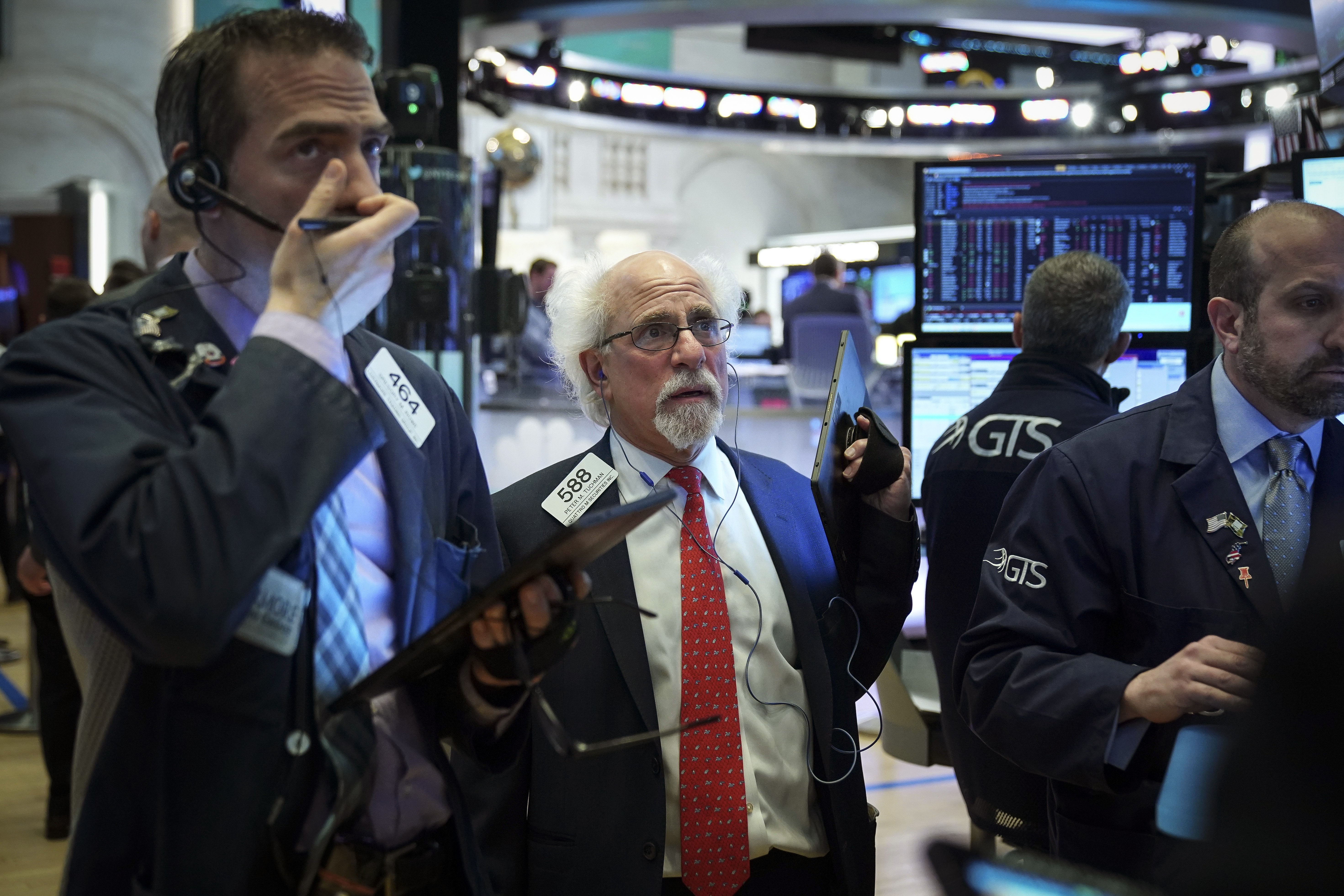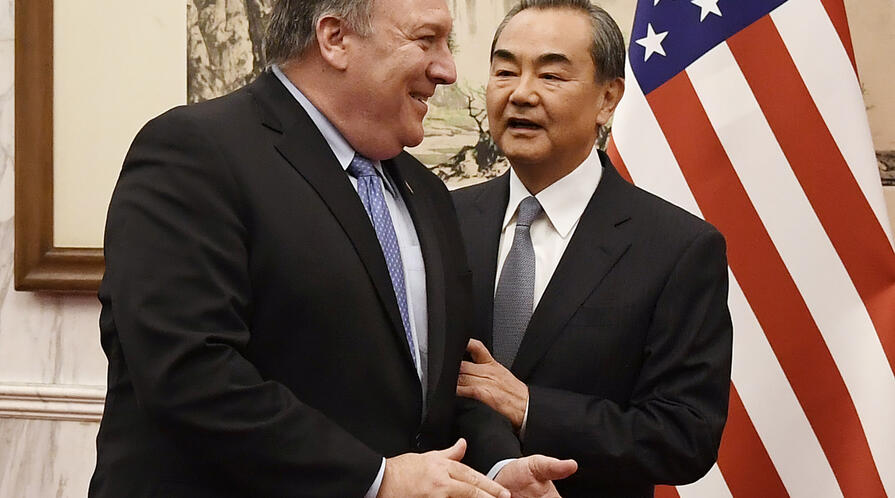China Economics Expert Urges Pragmatic Approach to U.S. Engagement with China
By 1978, after the “epic impoverishment” borne of Mao’s non-market, ideologically-driven economy, China was almost like “a hot air balloon [that had been held] ten feet underwater” and suddenly let go, described Daniel Rosen, founding partner of the Rhodium Group, before an audience at a recent colloquium organized by Shorenstein APARC’s China Program.
Rosen—who leads the Rhodium Group’s work in China, India, and Asia—drew on his 26 years of professional experience analyzing China’s economy, commercial sector, and external interactions, to share his insights on the implications of China’s recent divergence from liberal market norms even as the U.S. and China are trying to reach an agreement that could end a protracted trade war.
With its explosive rise, increasing U.S.-China economic tensions, argued Rosen, were inevitable. By reverting to non-market principles under Xi Jinping, however, China’s divergence from advanced economic norms has triggered a hostile reaction from the United States. He acknowledged that China has “the sovereign right to choose the system it thinks best for itself,” including reverting to non-market principles. But, he noted, “as an old adage goes, paraphrased, China’s freedom to swing its fists stops where other noses begin.”
China, with its thirteen trillion-dollar economy is now the world’s second largest economy. China’s economic footprint, too—as trader, foreign investor, and lender, among others—is enormous around the world. Thus, Rosen pointed out, now when “China sneezes, the rest of the world can catch a cold or pneumonia.” By disavowing the primacy of market principles, furthermore, China’s decisions will now have spillover consequences for not only the way the rest of the global economy functions but also for economic prospects of the United States.
Rosen highlighted, in particular, three aspects of China’s divergence from market norms: its financial markets, competitive regimes; and IP protection rules. China’s capital markets give preferential treatment to its domestic state firms and discriminates against not only foreign firms but also its private firms. He also stressed China’s uneven competition policies—as most dramatically epitomized in its “Made in 2025” policy—that establish asymmetric market access for foreign firms in China versus Chinese firms abroad; China’s state and sub-state financial subsidies set up to advantage domestic firms; and China’s domestic control of intellectual property in large swathes of critical industries. China’s “Made in 2025” policy thereby, for example, distorts the innovation ecosystem of the world and the United States. As Rosen asserted, “We depend for our vitality on structural conditions that non-market policy choices by a systemically important national could disrupt.”
In Rosen’s assessment, President Xi Jinping had begun his tenure with a far-reaching set of economic reforms called the “60 Decisions” of the Third Plenum Resolution in 2013. But these market-centered initiatives, many of which Xi’s administration did push initially, led to “mini” (and “many”) crises, he stated. These reforms, therefore, have stalled. “The shadow over U.S.-China economic engagement comes not because China refused to reform in the Xi Jinping years,” Rosen asserted, “but because lately it has stumbled in attempting to do so.”

NEW YORK, NY - MAY 6: Traders and financial professionals work at the opening bell on the floor of the New York Stock Exchange (NYSE), May 6, 2019 in New York City. The Dow Jones Industrial Average dropped over 360 points at the open on Monday morning after U.S. President Donald Trump said that the U.S. will raise tariffs on goods imported from China. China also threatened to skip upcoming trade talks following tariff threats from President Trump.
According to Rosen, hardening U.S. approach to Chinese trade policy and the current discussion of possible “disengagement” with China are the result of U.S. recognition that China had changed course away from convergence with the liberal international economic order. It, in fact, stems from the U.S.’s valid need to protect its economic welfare and the welfare of other market economies from the deleterious effects of China’s illiberal policies. In the same way, he claimed, that the U.S. is not as deeply engaged with Italy as it is with Germany, and that we are not as deeply engaged with Germany as we are with Great Britain, it is not “heresy” to say that nations that do not share the same basic economic framework cannot be as engaged together—or as interoperable—as nations that do.
But, Rosen predicted, China’s own turn away from market principles is bound to fail. Liberal market reforms delivered double-digit growth for China since Deng Xiaoping’s Opening and Reform. And “[u]nless everything we think we know about the relative efficiency and dynamism of free markets over politically controlled economies is wrong, the present Chinese policy turn will be, in the end, a dead-end,” Rosen remarked. According to his prediction, therefore, we will either see a weakened China that poses less of an economic and national security threat to the U.S. or a China that eventually returns to market norms (i.e., “a reversion back to what will work.”).
In the meantime, therefore, he suggested that the American response must be “provisional,” “partial,” and “peaceful.” American policy must be adaptable and readily reversible such that our ability to reengage to the maximum with China is carefully protected. Secondly, it must be “partial” rather than absolute. And, lastly, it must be “peaceful.” When Beijing’s non-market policies fail, as it will, Rosen averred, and China re-orients itself towards economic convergence with advanced economy norms once more, we must ensure a “foundation of good will” between the U.S. and China to which China can return.
Rosen also cautioned against the U.S. abandoning its own source of national strength—i.e., its openness. Arguing that economic protectionism has too often been confused with national security, Rosen argued that primary threats to U.S. national security now stem more from new causes like climate change, pandemics, migration pressures and access to weapons of mass destruction. “Economic protection will do little to nothing to address those risks,” Rosen pointed out.
Rosen spoke at Shorenstein APARC as part of the China Program’s Colloquia Series “A New Cold War?: Sharp Power, Strategic Competition, and the Future of U.S.-China Relations.” The series continues on May 3 with Ambassador Chas W. Freeman, Jr.’s seminar “On Hostile Coexistence with China.”
















